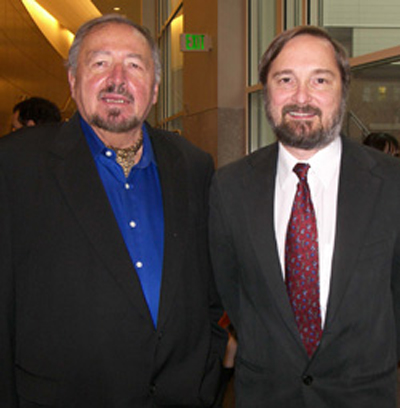
Bacteriology was first taught as a distinct course at the University of Maryland School of Medicine during the 1893-1894 academic year. In 1919, a separate Department of Bacteriology emerged from the combined Department of Pathology and Bacteriology. The first head of the Department was William R. Stokes, MD, who also served as the Bacteriologist to the State and City Boards of Health in Baltimore. Dr. Stokes published numerous articles on the important infectious disease issues of that time, including tuberculosis, diphtheria and disinfection of municipal drinking water. During his tenure, in 1920, the subject of immunology was introduced as a separate course in the medical school curriculum.
While investigating an outbreak of psittacosis for the Board of Health, Dr. Stokes contracted the disease and died in 1930. Frank Hachtel, MD, succeeded Dr. Stokes as Head of the Department of Bacteriology, a position he held until his retirement in 1954. Dr. Hachtel had originally joined the department in 1920 and for many years was the only full-time faculty member in the department. He was primarily a teacher but did pursue some research in bacterial physiology and metabolism.
A stronger research focus began with the recruitment of Charles J. Wisseman, Jr., MD, from the Walter Reed Army Institute of Research. Appointed as Department Chair in 1954, Dr. Wisseman molded the department around his own research area of rickettsiology. By 1980, all but two faculty members in the department (by then called the Department of Microbiology) were conducting research on rickettsiae. The academic scope was expanded in the 1980s with the recruitment of three immunology faculty, and in 1986 the department's name was changed to the Department of Microbiology & Immunology.
Dr. Wisseman retired in 1987 and was succeeded by Dr. Paul Fiset as Interim Chair for two years. In 1989, Jan Cerny, MD, PhD, was recruited from the University of Texas Medical Branch in Galveston to become Chair. Dr. Cerny’s research interests focused on B cell ontogeny and age-related changes in antibody repertoire. As Chair, he greatly strengthened immunology research in the department and in the School of Medicine by recruiting new faculty and sponsoring the University of Maryland Immunology Group (UMIG), an interdepartmental program of research, teaching, and seminar speakers in immunology.
Dr. Cerny stepped down as Chair in 2007. He was succeeded by James B. Kaper, PhD, the current Chair of the Department of Microbiology & Immunology. Dr. Kaper’s research focuses on the molecular pathogenesis of enteric pathogens including diarrheagenic Escherichia coli and vaccine development for Vibrio cholerae. (Learn More About Dr. Kaper)
The department has greatly expanded over the years to include faculty members based in the Institute for Genome Sciences, the Institute of Marine and Environmental Technology, the Greenebaum Comprehensive Cancer Center and other centers in the University of Maryland School of Medicine. With more than 50 faculty members, it is the largest basic science department in the UMSOM. The department works closely with the Department of Microbial Pathogenesis in the University of Maryland School of Dentistry to provide a joint graduate program and shared teaching responsibilities for medical and graduate students. These departments, along with the Center for Vaccine Development and Global Health, the Institute for Human Virology and faculty in other departments and centers, constitute one of the largest concentrations of researchers in the area of microbiology, immunology, infectious diseases and vaccine development in the U.S.
The Department is highly ranked in research funding, as shown by the Blue Ridge Institute for Medical Research which tracks NIH funding awarded to academic institutions. From 2019 to the present, the Department of Microbiology & Immunology has been ranked within the top 10 of nearly 100 departments of microbiology/ immunology/ virology.
